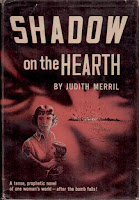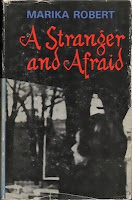One Canadian man recommends ten unjustly neglected novels by ten Canadian women:
The Midnight Queen
May Agnes Fleming
1863
A gothic tour de force by the country's first bestselling author, The Midnight Queen has it all: the Black Plague, the Fire of London, a killer dwarf, prostitutes playing at being aristocrats, and a clairvoyant who has nothing more than a skull for a head.
Marion: An Artist's Model
Winnifred Eaton
1916
I was torn between recommending this and the author's later novel "Cattle" (1924). Marion won out as a roman à clef that reveals much about her family – surely the most remarkable in Victorian Montreal.
Up the Hill and Over
Isabel Ecclestone Mackay
1917
A story of cocaine addiction, opium addiction, love and loss in small town Ontario. Social historians may find Mackay's Blencarrow (1926), in which domestic abuse figures, more interesting, but this novel has the better plot.
John
Irene Baird
1937
A quiet, understated, pastoral novel, this wasn't quite my thing. I include John because it was so well received in its day, and in recognition of those drawn to quiet, understated, pastoral novels. By the author of Waste Heritage.
Do Evil in Return
Margaret Millar
1950
Margaret Millar ranks with husband Kenneth as being amongst the greatest Canadian writers of her generation. The plot is driven by a woman doctor's refusal to perform an illegal abortion. Do Evil in Return is remarkable for its time.
Shadow on the Hearth
Judith Merril
1950
A Cold War nightmare, Merril's debut novel centres on what happens to a nuclear family when the bombs begin to fall. The novel is not so much about war as it is the way governments use crisis to control their citizens.
The Cashier [Alexandre Chenevert]
Gabrielle Roy
1954
Another novel written under the influence of the Cold War, Alexandre Chenevert was to have been the follow-up to Bonheur d'occasion, but ended up as Roy's third novel. A story filled with angst and fear, it almost seems more suited to today.
M'Lord, I Am Not Guilty
Frances Shelley Wees
1954
A novel of domestic suspense centred on a woman's attempt to clear herself of her husband's murder. Set in post-war suburban Toronto, cocktails and adultery figure.
Best Man [Doux-amer]
Claire Martin
1960
A tale of obsessive love set within the publishing world, Martin's protagonist is an editor who falls hard for aspiring novelist Gabrielle Lubin. As a writer, she's not much good, but his work transforms her into a critical darling.
A Stranger and Afraid
Marika Robert
1964
The author's only novel, on the surface it concerns a woman who finds refuge in Canada after the horrors of the Second World War. Below the surface, it's about sexual expression and the protagonist's attraction to sado-masochism.
Related posts:
The Promise of a Man, a Woman in So Much Pain
A Quiet, Mildly Depressing Depression-Era Debut
Desperately Seeking Violet
A Nuclear Family Nightmare
A Quiet, Mildly Depressing Depression-Era Debut
Desperately Seeking Violet
A Nuclear Family Nightmare
Bad News for Modern Man
Domestic Suspense in Small Town Ontario
Claire Martin at the Start of a Quiet Revolution
A 49-Year-Old Fifty Shades? S&M from M&S?
Domestic Suspense in Small Town Ontario
Claire Martin at the Start of a Quiet Revolution
A 49-Year-Old Fifty Shades? S&M from M&S?











































